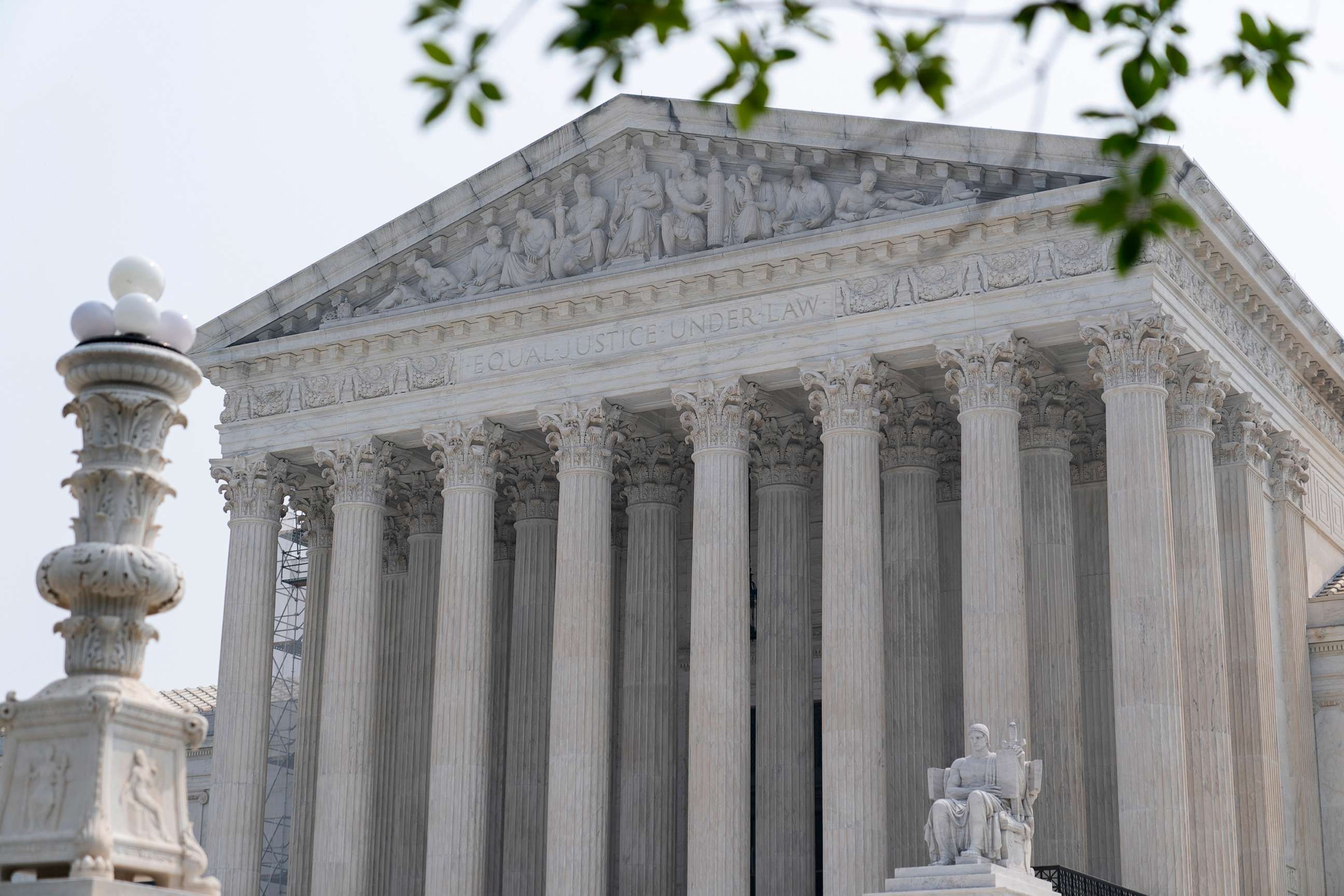Most Americans approve of Supreme Court decision restricting use of race in college admissions: POLL
Most Americans support the Supreme Court's decision on affirmative action.
A majority of Americans approve of the Supreme Court ruling restricting the use of race as a factor in college admissions, though the country is more divided on other high-profile rulings and increasingly viewing the court as driven more by politics than the law, according to a new ABC News/Ipsos poll conducted using Ipsos' KnowledgePanel.
On Thursday, the Supreme Court set new limits on affirmative action programs in cases involving whether public and private colleges and universities can continue to use race as one factor among many in student admissions.
A little more than half of Americans -- 52% -- approve of the U.S. Supreme Court decision on restricting the use of race as a factor in college admissions, while 32% disapprove and 16% saying they don't know.
A majority of Republicans (75%) and independents (58%) approve of the ruling, while a distinct minority of Democrats approve (26%).

And there are deep divisions between racial groups. Most white people (60%) and Asian people (58%) approve of the Supreme Court's decision to limit the use of race in college admissions, while only 25% of Black people support the decision. Hispanic people are split, with 40% approving and 40% disapproving.
Still, despite most Americans supporting the decision to end affirmative action in universities, Americans are less likely to think Black and Hispanic students have a fair chance of getting into the college of their choice compared to their white and Asian student counterparts. About two-thirds of Americans say that white and Asian students have a fair chance compared to only 47% who say this about Black students and 50% for Hispanic students.
As the Supreme Court has ended its term and is on break for the summer, a majority of Americans -- 53% -- believe that the nation's highest court rules mainly on the basis of their partisan political view rather than on the basis of the law (33%), while 14% say they don't know.
A majority of Democrats (76%) and independents (51%) believe that the Supreme Court rules mainly on the basis of their partisan political view, a significant difference from the 36% of Republicans who believe that the court makes rulings based on their political views.
These margins have shifted from a January 2022 ABC News/Ipsos poll, where 38% of Americans believed that the justices rule mainly on the basis of law, versus 43% who believed that the court rules on the basis of their political views.

The same week the Supreme Court effectively ended affirmative action in college admissions, the high court also struck down President Joe Biden's student loan forgiveness program, which would have aimed to forgive student loan debt for more than 43 million American borrowers.
In the new ABC News/Ipsos poll, 45% of Americans support the Supreme Court's decision to strike down Biden's student loan forgiveness program, while 40% disapprove of the decision.
Broken down by party – only 17% of Democrats supported the Supreme Court decision compared to 71% of Republicans and 49% of independents.
Views on this decision also vary by age with older Americans more likely to approve. Sixty-one percent of those 65 and older approve of the decision compared to 50% of 50–64-year-olds, 40% of 30-49-year-olds and 31% of those under 30.
"I know there are millions of Americans, millions of Americans in this country who feel disappointed and discouraged, or even a little bit angry about the Court's decision today on student debt. And I must admit, I do, too," Biden said on Friday following the decision.
Despite the Supreme Court ruling against Biden's debt forgiveness plan, the president told the American people on Friday that he is not giving up on providing relief to borrowers, pursuing debt forgiveness through the Higher Education Act.
According to the White House, Education Secretary Miguel Cardona has initiated the rulemaking process on this new attempt at debt relief -- but it's unclear who would get relief or how much, as well as whether it'll withstand any legal challenges.
Another landmark decision was handed down this week by the Supreme Court, which ruled for an evangelical Christian website designer in a case involving whether creative businesses can refuse to serve LGBTQ+ customers, citing free speech under the First Amendment.
In the new ABC/Ipsos poll, there was a near-even split on this decision, with 43% of Americans approving the decision and 42% disapproving and another 14% saying they don't know.
Again, depending on how they identified politically, there was a large gap between how people viewed the opinion.
Only 15% of Democrats approve of the decision compared to 68% of Republicans and 49% of independents. In addition, those under 50, Black people and women were less likely to approve of this decision.
METHODOLOGY – This ABC News/Ipsos poll was conducted using Ipsos Public Affairs' KnowledgePanel® June 30-July 1, 2023, in English and Spanish, among a random national sample of 937 U.S. adults with oversamples of Black, Hispanic and Asian respondents weighted to their correct proportions in the general population. Results have a margin of sampling error of 3.6 points, including the design effect. Partisan divisions are 26-25-41 percent, Democrats-Republicans-independents. See the poll's topline results and details on the methodology here.
ABC News' Dan Merkle contributed to this report




